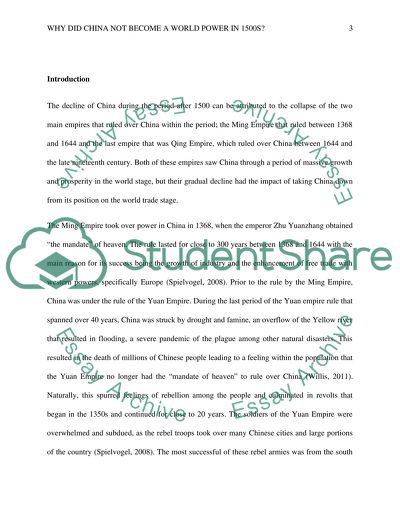Cite this document
(“Why did China not become a world power in 1500s Research Paper”, n.d.)
Why did China not become a world power in 1500s Research Paper. Retrieved from https://studentshare.org/history/1489490-why-did-china-not-become-a-world-power-in
Why did China not become a world power in 1500s Research Paper. Retrieved from https://studentshare.org/history/1489490-why-did-china-not-become-a-world-power-in
(Why Did China Not Become a World Power in 1500s Research Paper)
Why Did China Not Become a World Power in 1500s Research Paper. https://studentshare.org/history/1489490-why-did-china-not-become-a-world-power-in.
Why Did China Not Become a World Power in 1500s Research Paper. https://studentshare.org/history/1489490-why-did-china-not-become-a-world-power-in.
“Why Did China Not Become a World Power in 1500s Research Paper”, n.d. https://studentshare.org/history/1489490-why-did-china-not-become-a-world-power-in.


